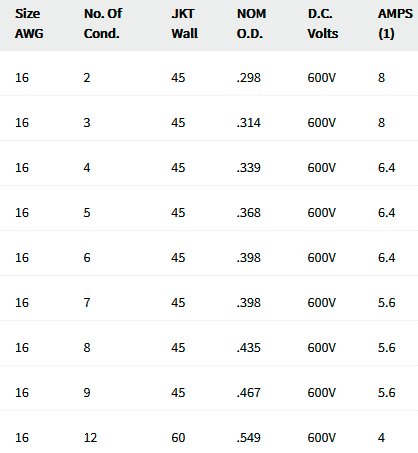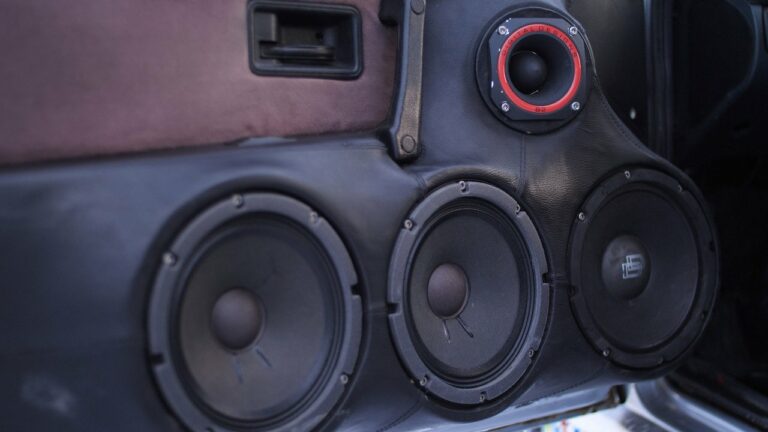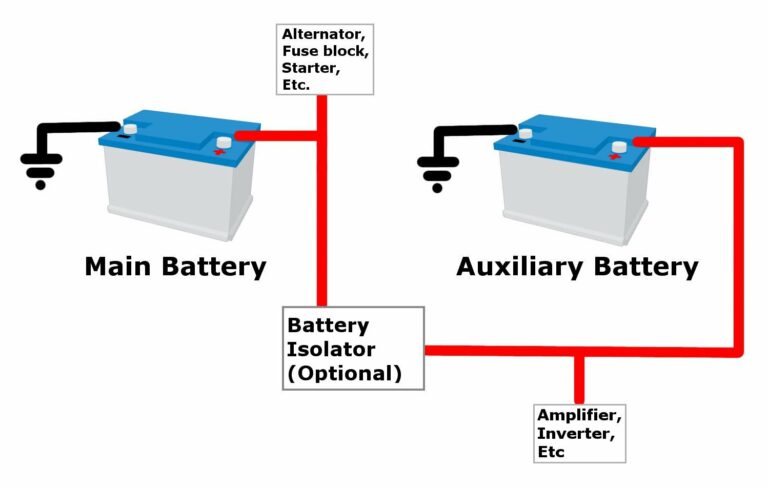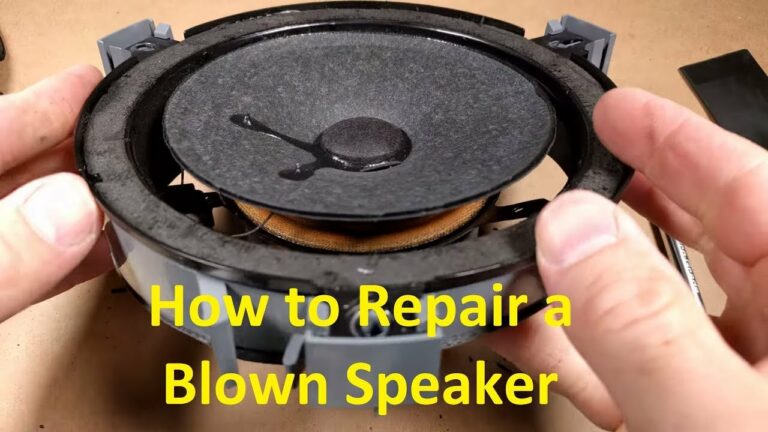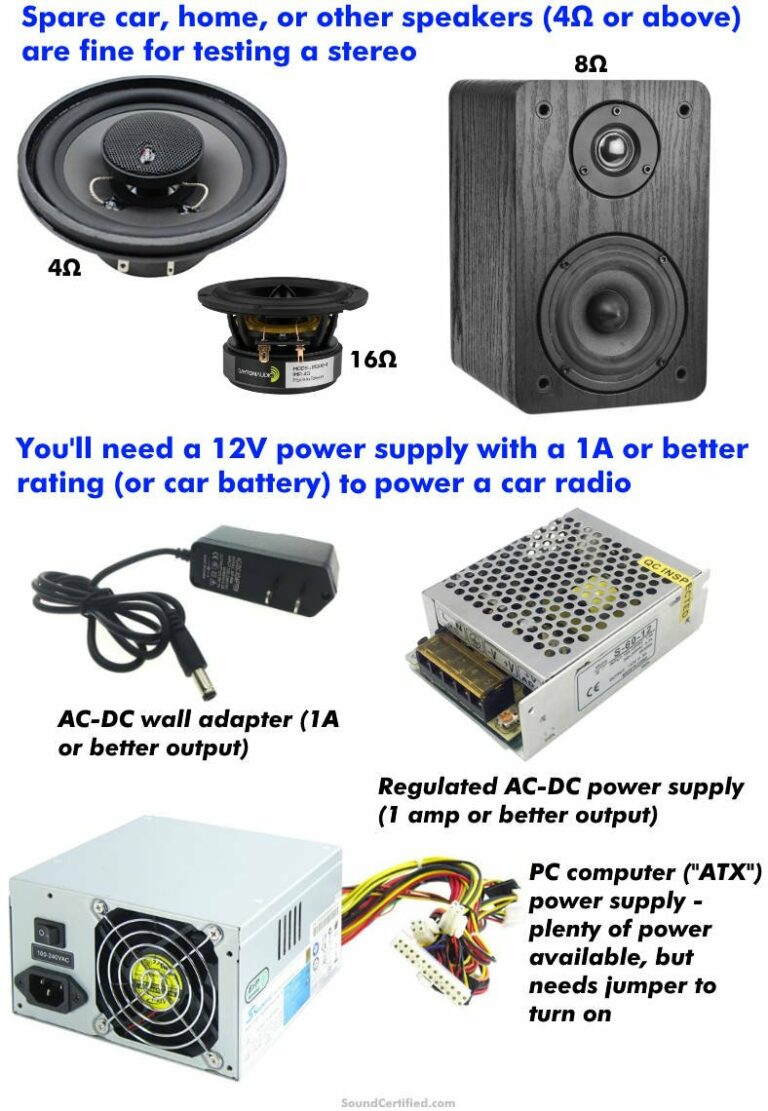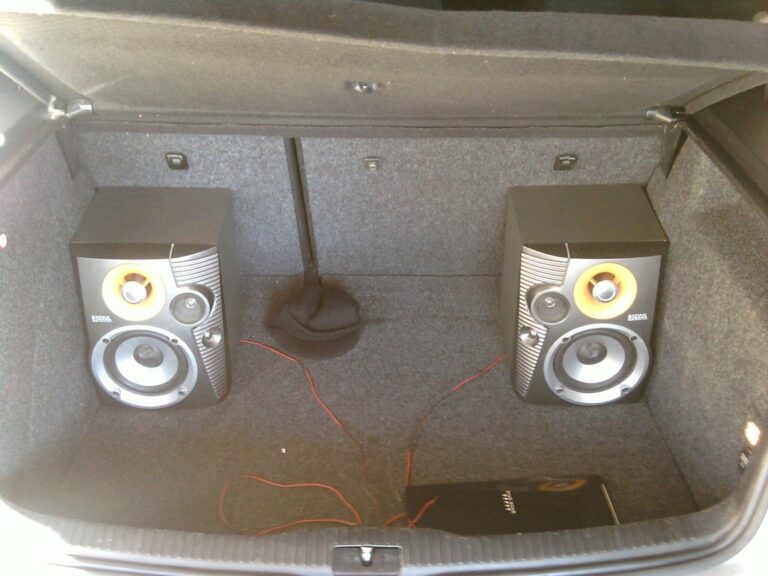How Many Watts Can 12 Gauge Speaker Wire Handle? Find Out Now!
How many watts can 12 gauge speaker wire handle? It’s a common question for those setting up their audio systems. The answer lies in understanding the power capacity of the wire and matching it with your amplifier’s output. In simple terms, the gauge of the wire determines its thickness, and a 12 gauge wire is relatively thick compared to others.
This thickness allows it to handle higher power levels without overheating or losing signal quality. So, if you’re looking for a wire that can handle substantial wattage, 12 gauge speaker wire is a reliable choice. Let’s delve deeper into the details to help you make an informed decision.
How Many Watts Can 12 Gauge Speaker Wire Handle?
Speaker wire plays a crucial role in delivering high-quality audio signals from your amplifier or receiver to your speakers. When it comes to choosing the right gauge of wire, it’s important to consider factors such as maximum power handling capability. In this article, we will explore the topic of how many watts 12 gauge speaker wire can handle and provide you with a comprehensive guide to help you make an informed decision.
Understanding Speaker Wire Gauges
Speaker wire gauges determine the thickness and conductivity of the wire. The lower the gauge number, the thicker the wire. Thicker wire offers lower resistance, allowing for better power transmission and minimized loss. 12 gauge speaker wire is a commonly used option that strikes a balance between performance and cost-effectiveness.
Power Handling Capacity of 12 Gauge Speaker Wire
The power handling capacity of speaker wire is determined by a combination of factors, including the wire gauge, wire length, and the impedance of the speakers. 12 gauge speaker wire is capable of handling a significant amount of power, making it suitable for most home audio setups.
Factors Affecting Power Handling
1. Wire Gauge: The thickness of the wire affects its power handling capability. Thicker wires, such as 12 gauge, have lower resistance, allowing for the transmission of higher power levels.
2. Wire Length: Resistance increases with wire length, which can lead to power loss. Longer wire runs may require thicker gauge wire to minimize resistance and maximize power handling.
3. Speaker Impedance: The impedance rating of your speakers also impacts power handling. Speakers with lower impedance ratings draw more power and require thicker gauge wire to handle the load.
Calculating Power Handling Capability
To determine the power handling capability of 12 gauge speaker wire, you need to consider the wire’s resistance, current flow, and voltage. Using Ohm’s Law (P = I²R), where P is power in watts, I is current in amperes, and R is resistance in ohms, you can make an estimation.
For example, assuming a wire length of 50 feet and a resistance of 0.00159 ohms per foot for 12 gauge wire, the total resistance would be 0.0795 ohms (0.00159 ohms/ft * 50 ft). If the current flowing through the wire is 5 amperes, the power handling capability would be P = (5 A)² * 0.0795 Ω, which equals 1.9875 watts.
Practical Considerations
While calculations can provide a rough estimation of the power handling capability, real-world scenarios involve additional factors. It’s essential to consider the following practical considerations:
Speaker Sensitivity
Speaker sensitivity plays a significant role in determining the power requirements for your audio system. Speakers with higher sensitivity ratings require less power to produce the same volume compared to speakers with lower sensitivity ratings. Higher sensitivity speakers can be paired with lower power amplifiers, reducing the strain on the speaker wire.
Wire Length
As mentioned earlier, longer wire runs result in increased resistance and power loss. To maintain optimal power transmission, it’s important to keep wire lengths as short as possible. If longer wire runs are necessary, consider using thicker gauge wire to compensate for the increased resistance.
Amplifier Power Output
The power output of your amplifier or receiver should also be considered. If you have a high-powered amplifier, you may want to use thicker gauge wire to handle the increased power output. However, if your amplifier has a moderate power output, 12 gauge wire should be sufficient for most applications.
Speaker Impedance
The impedance rating of your speakers is another critical factor. Most home audio speakers have an impedance of either 4 or 8 ohms. While 12 gauge wire can handle the power requirements of both impedance types, speakers with lower impedance ratings will draw more current and generate more heat. Ensure that your wire can handle the extra load to prevent overheating.
In conclusion, 12 gauge speaker wire is a versatile option that can handle a significant amount of power. It strikes a balance between cost-effectiveness and performance, making it suitable for most home audio setups. However, it’s important to consider practical factors such as speaker sensitivity, wire length, amplifier power output, and speaker impedance when determining the appropriate gauge wire for your specific application.
Remember, this guide provides a general understanding of the power handling capability of 12 gauge speaker wire, but real-world scenarios may involve additional variables. By taking these factors into account, you can ensure optimal audio performance while minimizing potential issues such as power loss and overheating.
What WIRE GAUGE SIZE for amplifier install? How to calculate!
Frequently Asked Questions
What is the maximum wattage that 12 gauge speaker wire can handle?
12 gauge speaker wire, known for its thicker size, can typically handle a maximum wattage of around 1,200 watts. This gauge is commonly used for high-power audio systems or installations that require a significant amount of power. It is essential to consider the gauge of the wire carefully to ensure it can handle the power demands of the speakers and equipment it will be connected to.
Can 12 gauge speaker wire support lower wattage audio systems?
Absolutely! While 12 gauge speaker wire has the capacity to handle higher wattages, it is still suitable for lower power audio systems. Its larger size allows for greater current flow, resulting in minimal resistance and improved overall sound quality. So, whether you have a high-powered or lower wattage audio setup, 12 gauge speaker wire can be a reliable and effective choice.
What happens if I use speaker wire with a lower gauge for higher wattage systems?
Using speaker wire with a lower gauge than recommended for higher wattage systems can lead to several issues. The wire may not be able to handle the power demands, resulting in overheating, distortion, or even damage to the wire and connected equipment. It is crucial to match the speaker wire gauge with the power requirements of your audio system to ensure proper performance and avoid any potential risks.
Are there any disadvantages to using 12 gauge speaker wire for lower wattage systems?
While there are no significant disadvantages to using 12 gauge speaker wire for lower wattage systems, it may be slightly costlier than thinner gauge wires. However, the improved conductivity and reduced resistance provided by 12 gauge wire can still result in better audio quality. So, if budget permits, using 12 gauge wire even for lower wattage systems can be a worthwhile investment for optimal sound reproduction.
Can speaker wire gauge affect the sound quality of an audio system?
Yes, the speaker wire gauge can indeed impact the sound quality of an audio system. In general, thicker gauge wires like the 12 gauge offer lower resistance, allowing for a more efficient transfer of electrical signals. This improved conductivity can result in clearer, more accurate sound reproduction, especially for higher wattage systems. So, choosing the appropriate gauge for your speakers can contribute to an enhanced audio experience.
Is it necessary to use 12 gauge wire for all speakers in a system?
It is not always necessary to use 12 gauge wire for all speakers in a system. The gauge required depends on both the power rating of the speakers and the distance between the speakers and the amplifier. For longer distances or higher powered speakers, thicker gauge wires like 12 gauge are recommended. However, for shorter distances or speakers with lower power requirements, a thinner gauge wire may suffice without compromising sound quality.
Final Thoughts
In conclusion, the 12 gauge speaker wire has the capability to handle a certain amount of watts. This particular wire gauge is known for its ability to handle higher power levels compared to thinner gauges. While the exact wattage capacity may vary depending on factors such as wire length and impedance, 12 gauge speaker wire can generally handle power ratings of up to several hundred watts. Therefore, it is recommended to use this gauge for speakers or audio systems that require higher power outputs. Understanding the wattage capacity of your speaker wire is essential for ensuring optimal performance and preventing potential damage.
